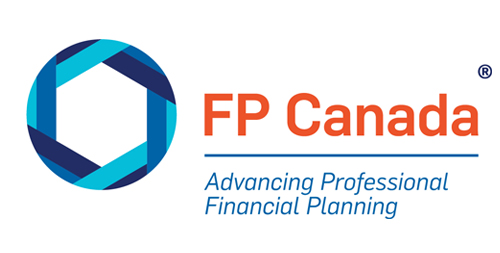Pooled Funds
KNOWLEDGE EXPECTED OF: QAFP® Professionals
Highest Knowledge Level: Awareness
Knowledge Levels and Associated Verbs
|
Awareness
The state of being aware that something exists / to have familiarity with a particular activity or subject
|
Understanding
To comprehend the general relationship of particulars / to have an expertise with how something works
|
Application
Ability to put information to use / to use knowledge for relevant, practical purposes
|
Evaluation
To judge or conclude by utilizing data / a systematic determination of something’s worth or significance
|
||||||
|---|---|---|---|---|---|---|---|---|---|
|
Define
To state exactly the meaning of
|
Identify
To be aware of / to recognize and correctly name / to locate an appropriate resource
|
Explain
To make clear the meaning of / to describe something in more detail or reveal relevant facts or ideas related to it
|
Determine
To ascertain / to come to a decision, such as by investigation or reasoning
|
Compare
To note the similarities and differences between two or more things
|
Estimate
To determine an approximate value for
|
Calculate
To find the value using mathematics
|
Convert
To change from one form or purpose to another
|
Evaluate
To reach a conclusion or make a through careful study
|
Interpret
To give the meaning of / to construe or understand / to translate orally
|
Hold cursor over or click on each term to read its definition.
- Define a pooled fund.
- Identify the purpose for which a pooled fund may be used.
- Identify that pooled funds require a securities license for an individual to act in furtherance of a trade.
- Identify that pooled funds must be approved by the securities administrator of the province/territory in which they are traded.
- Identify that pooled funds are typically structured as a trust.
- Identify that pooled funds are offered via offering memorandum, through private placement.
KNOWLEDGE EXPECTED OF: CFP® Professionals
Highest Knowledge Level: Evaluation
Knowledge Levels and Associated Verbs
|
Awareness
The state of being aware that something exists / to have familiarity with a particular activity or subject
|
Understanding
To comprehend the general relationship of particulars / to have an expertise with how something works
|
Application
Ability to put information to use / to use knowledge for relevant, practical purposes
|
Evaluation
To judge or conclude by utilizing data / a systematic determination of something’s worth or significance
|
||||||
|---|---|---|---|---|---|---|---|---|---|
|
Define
To state exactly the meaning of
|
Identify
To be aware of / to recognize and correctly name / to locate an appropriate resource
|
Explain
To make clear the meaning of / to describe something in more detail or reveal relevant facts or ideas related to it
|
Determine
To ascertain / to come to a decision, such as by investigation or reasoning
|
Compare
To note the similarities and differences between two or more things
|
Estimate
To determine an approximate value for
|
Calculate
To find the value using mathematics
|
Convert
To change from one form or purpose to another
|
Evaluate
To reach a conclusion or make a through careful study
|
Interpret
To give the meaning of / to construe or understand / to translate orally
|
Hold cursor over or click on each term to read its definition.
- Define a pooled fund.
- Identify the purpose for which a pooled fund may be used.
- Identify that pooled funds require a securities license for an individual to act in furtherance of a trade.
- Identify that pooled funds must be approved by the securities administrator of the province/territory in which they are traded.
- Identify that pooled funds are typically structured as a trust.
- Identify that pooled funds are offered via offering memorandum, through private placement.
Additional Knowledge Expected of CFP Professionals
- Determine how each of these factors may impact the suitability of a pooled fund:
- Time horizon
- Volatility
- Risk tolerance
- Investment objective
- Financial situation
- Personal situation
- Income
- Liquidity
- Control
- Tax impact
- Investment management process
- Economic cycle
- Cost
- Historical performance
- Performance expectations
- Evaluate how each of the factors may impact the suitability of a pooled fund.
- Explain for whom a pooled fund may be suitable.
- Explain types of sales charges that may be charged on a pooled fund, such as:
- No-load
- Low-load
- Front-end
- Back-end or deferred sales charge
- Explain fees associated with pooled funds, such as:
- Trailer fee
- Management fee
- Management expense ratio
- Trading expense ratio
- Early redemption fee
- Switching fees
- Define the Net Asset Value (NAV) for a pooled fund.
- Explain how a pooled fund is priced using the Net Asset Value (NAV).
- Interpret the Net Asset Value (NAV) for a pooled fund.
- Explain types of income that may be distributed by a pooled fund, such as:
- Interest
- Dividends
- Capital gains
- Explain the preservation of character that exists when income received by a pooled fund is distributed to unitholders of the pooled fund.
- Explain the impact of a distribution from a pooled fund on the net asset value (NAV).
- Explain the impact of reinvested distributions from a pooled fund on adjusted cost basis.
- Interpret the return for a pooled fund.
- Explain the tax impact (based on asset location) of a pooled fund.
- When distributions are received due to trading activity in the pool of investments
- Upon disposition of the pooled fund
- Explain that the return of a pooled fund may be presented gross of fees before expenses have been deducted.



 previous / Mutual Funds
previous / Mutual Funds